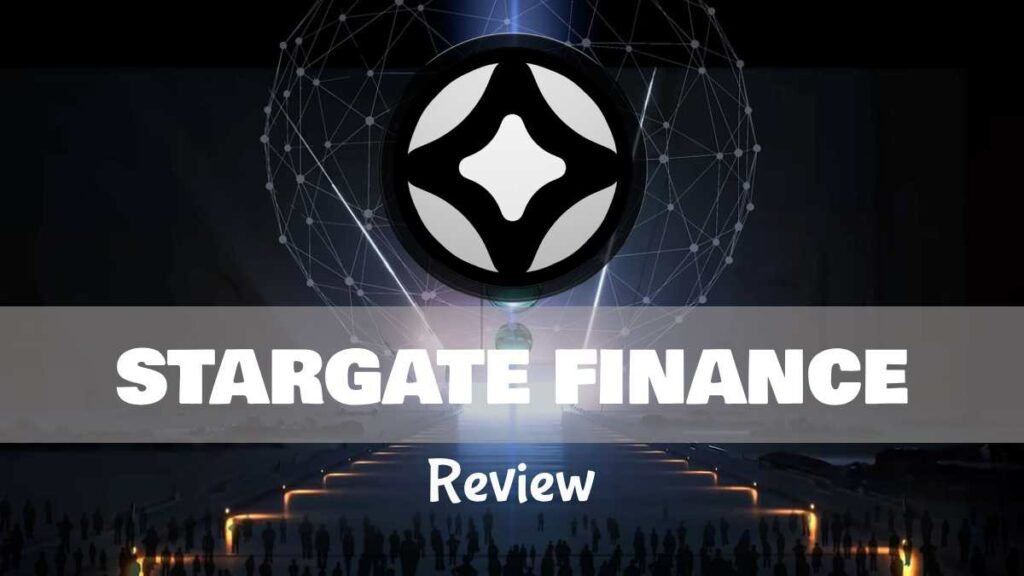If you are looking for a simple and efficient way to transfer your cryptocurrencies between different blockchains, Stargate Finance is perhaps what you are looking for.
If you are familiar with the use and transfer of digital assets, you will know that it is not possible to send a token or cryptocurrency from one blockchain to a different one without external technology. This presents a big problem for those looking to leverage the benefits of multiple blockchains to maximize their investments.
In this article we will look at what Stargate Finance is and how it works, a solution to one of the biggest problems with blockchain technology: the lack of connection between chains.
What Is Stargate Finance?
Stargate Finance is a crypto asset bridge based on LayerZero technology, which facilitates the transfer of assets between different blockchains in a secure and efficient way. Stargate Finance has developed an asset bridge that connects layer 1 and layer 2 blockchain networks, solving one of the biggest challenges in the decentralized finance (DeFi) space : inter-chain liquidity.
Stargate Finance’s main goal is to enable users to move their digital assets, such as cryptocurrencies and tokens, between different blockchains seamlessly. Not only making the process easier, but also making it much more economically efficient.
Imagine you want to transfer ETH from the Ethereum network to the Binance Smart Chain (BSC) network, that’s something that’s not possible without the intervention of other technologies. This is where Stargate comes in, which makes this process simple and secure.
How Does Stargate Finance Work?
Stargate Finance facilitates the transfer of assets between different blockchains. But how does it achieve this? This process is achieved through an innovative algorithm called Delta Algorithm and the use of unified liquidity pools.
Let’s look at each of them in more detail:
Delta Algorithm And Unified Liquidity Pools.
The heart of Stargate Finance is the Delta Algorithm, a balancing algorithm that enables native asset transfers with instant guaranteed completion. This algorithm works with unified liquidity pools, meaning that all blockchains and decentralized applications (dApps) integrated with Stargate Finance can deposit and withdraw from a single liquidity pool.
One of the common problems with unified liquidity pools is that multiple simultaneous withdrawal requests can exhaust the pool before all transactions are completed, creating major problems for investors. To avoid this, the Delta Algorithm programmatically controls the liquidity pool to ensure that it does not empty before completing user transfers.
Soft-Partitioned Pools
The Delta Algorithm allows each blockchain to maintain its own liquidity pools that are “soft-partitioned” into various portions. For example, the Ethereum network may have a $75 million liquidity pool, of which $10 million is allocated to BNB Chain and $12 million to Fantom, among others.
This soft partitioning ensures that the pools can borrow from sub-portions during liquidity crises and repay after processing transactions. This gives Delta Algorithm the flexibility to handle large simultaneous requests and mitigate liquidity gaps.
Rebalancing Fees
To prevent pools and their sub-pools from running out of funds, Stargate Finance has introduced rebalancing fees. These are transaction fees that incentivize users to move liquidity in a way that keeps the pools’ balances above their initial values.
Each time a user makes a transfer, the pool can become unbalanced. Rebalancing fees motivate users to replenish assets that have a low balance and discourage the reduction of certain assets. These fees are calculated based on the size of the transaction and the current balance of the pool.
Rebalancing Rewards
Rebalancing fees collected from transfers are accumulated in a reward pool. This amount is distributed to users who help rebalance the pools. The amount of rewards received depends on how close the user’s reload transaction brings the pool balance to the target balance.
What Is The $STG Token And What Are Its Benefits?
Stargate Finance has its own native token, $STG, which has several functions that are really worth knowing about and will help to better understand how Stargate works at some crucial points.
Governance
Holders of $STG can participate in decision making about the future of the platform and can also stake their $STG to get voting tokens called $veSTG. The longer they keep their tokens staked, the more $veSTG they receive, thus incentivizing long-term participation. In addition, users can add liquidity to Stargate pools and earn rewards in stablecoins for each transfer made through the platform.
Liquidity Providers (LPs)
When a user adds liquidity, they become a Liquidity Provider (LP). LPs receive rewards in the form of stablecoins every time someone uses the liquidity pool to transfer assets between blockchains. For example, if someone sends $USDC from Ethereum to Avalanche, LPs in the $USDC pool on Avalanche receive a portion of the transfer fees.
Stargate charges a flat fee for each transfer that is not in $STG. Of this fee, a portion goes to the LPs in the destination pool and a portion goes to Stargate’s treasury. This ensures that LPs are adequately rewarded for providing liquidity.
Farming
LPs can also “farm” their LP tokens, i.e., they can deposit them back into the platform to earn additional rewards in the form of $STG tokens. This farming process can offer attractive annual returns, which incentivizes users to provide more liquidity. Current staking and farming rewards are quite high, with some farming opportunities offering up to 30% annualized returns (APY). These attractive returns help Stargate accumulate more total locked value (TVL), which is crucial for handling large transfer volumes smoothly.
The maximum supply of $STG is 1 billion tokens. Prior to launch, 10% of these tokens were auctioned to generate liquidity on the blockchains with which Stargate integrates. Stargate Finance is designed to make asset transfers between different blockchains fast and efficient by incentivizing users to participate through various rewards and staking and farming opportunities. By providing a robust and attractive infrastructure for liquidity provision, Stargate ensures a steady and secure flow of transactions in the cryptocurrency world.
Is STG A Good Investment?

Predicting what the value of a cryptocurrency will be in the future is really difficult, considering the intrinsic volatility that characterizes this market. However, upon conducting a detailed research on Stargate Finance, we found that it is a project with great potential.
Moreover, we must take into account the investment opportunities offered by Stargate through its Liquidity Pools and Token Farming. This is an extra point to increase the demand for the $STG token and its potential price in the future.
With this in mind, making a long-term investment could be a good idea, with the prospect of the project continuing to show the current growth. Therefore, we recommend that each investor conduct their own research and closely follow the news of Stargate and its developments.
Conclusion
Stargate Finance has a clear objective: to facilitate the transfer of assets between chains. This is a very important need that has arisen for all users of blockchain technology. That is why, Stargate has the potential to establish itself as one of the most important projects in the ecosystem.
Its $STG token is really attractive for investors and users, as we have seen throughout this article, so it is worth paying attention to its evolution in the market in the future.
With all this said, we recommend that you keep a close eye on Stargate Finance’s developments, whether you are an investor looking for opportunities to generate profits, or a cryptocurrency user looking for ways to improve the efficiency of your assets.












